Best Parakeet Food: What Should You Feed Your Parakeet?
Wondering what the best foods for your parakeet are? We are going to show you the top foods that you should be feeding your bird to keep it healthy!
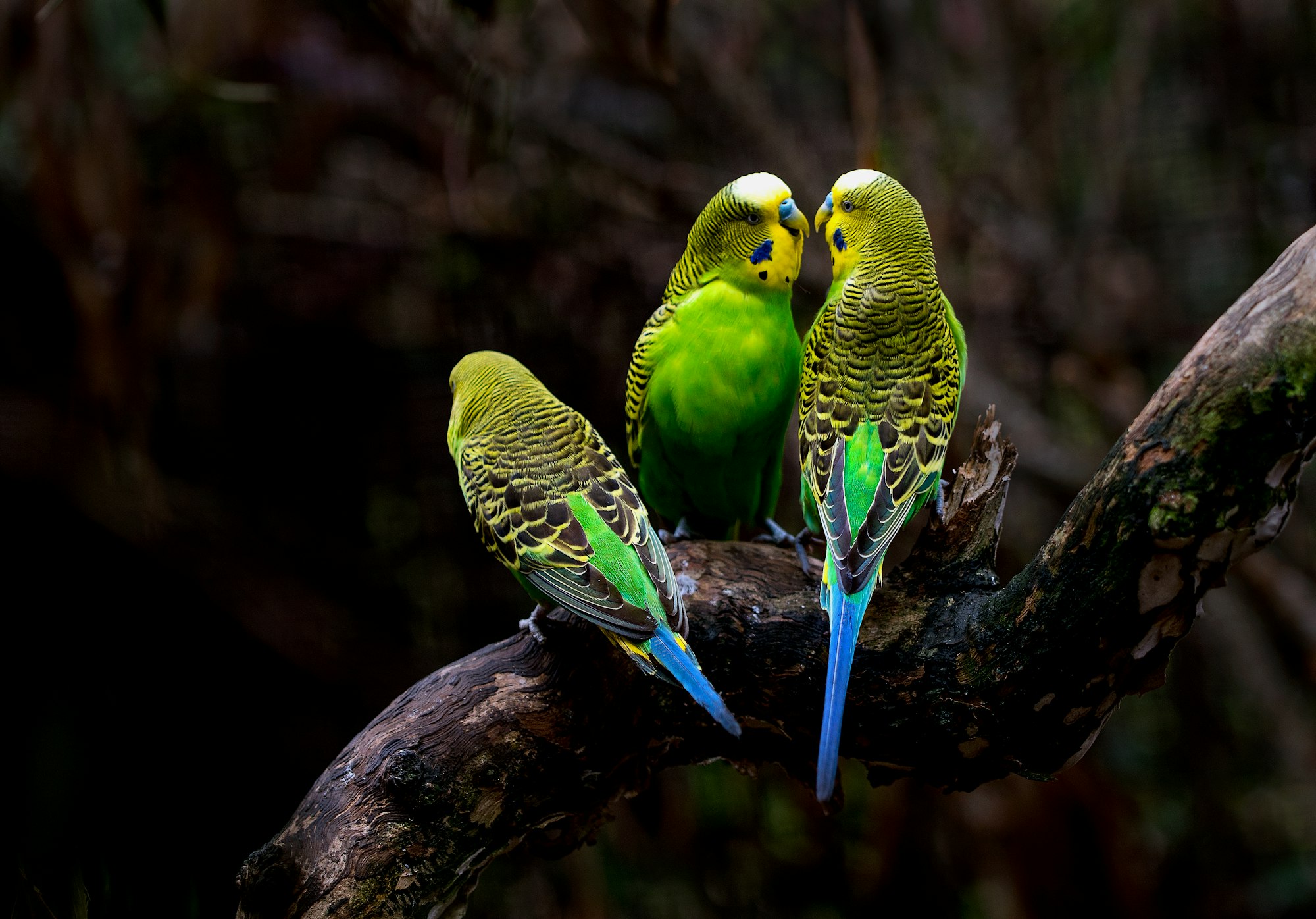
Key Takeaways:
- A balanced diet for parakeets includes a mix of seeds, fresh fruits, vegetables, and pellets.
- Fresh water and occasional treats are essential for maintaining healthy birds.
- Understanding the nutritional needs of parakeets ensures they receive all the nutrients required for a vibrant life.
Introduction
Feeding your parakeet the right food is like giving them the keys to a long, healthy, and happy life. These colorful, chirpy companions deserve the best food to thrive. But with so many options available, it can be challenging to determine what’s best for your feathered friend. This guide will help you navigate the world of parakeet nutrition, ensuring your pet bird eats a balanced and nutritious diet, including fresh veggies.
Understanding Parakeet Nutrition
Parakeets are delightful companions, and ensuring they receive a balanced diet is key to their health and happiness. Understanding their nutritional needs can help you provide the best care possible.
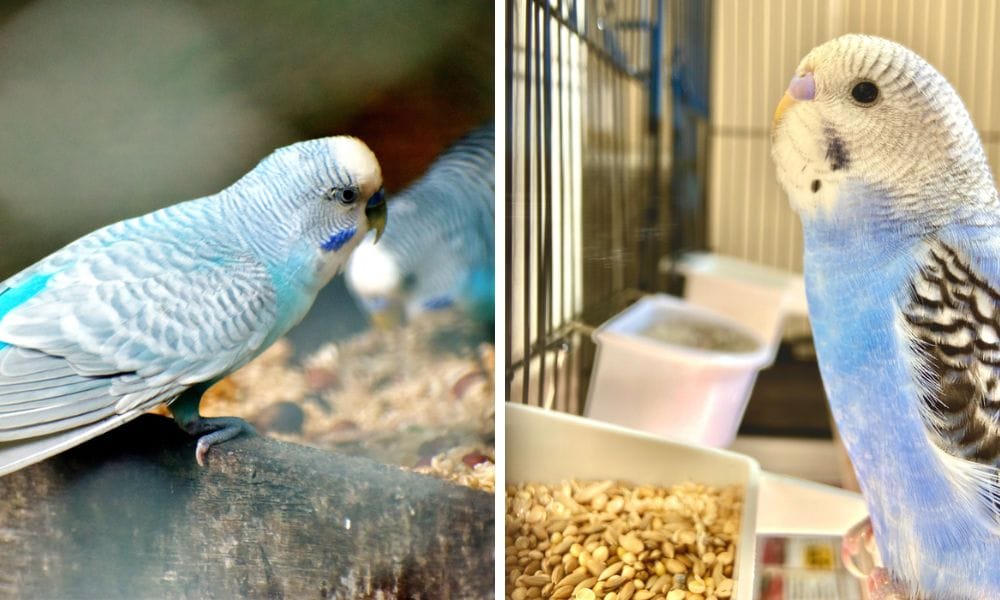
The Importance of a Balanced Diet
Parakeets, like all pet birds, require a diet that provides all the nutrients they need to stay healthy. A balanced diet for parakeets includes a mix of seeds, fresh fruits, vegetables, and pellets. This combination ensures they get the right amount of vitamins, minerals, and proteins.
Seeds are a staple in a parakeet’s diet, but they should not be the only food they consume. While seeds like canary grass seed, sesame seed, sunflower seeds, and hemp seed are popular, they lack some essential nutrients. Therefore, it’s crucial to supplement their diet with fresh foods and a high-quality pelleted diet.
Seed Mixes: The Foundation of a Parakeet's Diet
Seed mixes are a common choice for parakeet owners. These mixes typically include a variety of seeds such as canary grass seed, white millet, red millet, oat groats, canola seed, and poppy seed. These seeds provide essential fats and proteins that parakeets need.
However, not all seed mixes are created equal. It’s important to choose a high-quality parakeet blend that is free from artificial colors and preservatives. Look for seed mixes that include a variety of seeds to ensure your parakeet gets a range of nutrients.
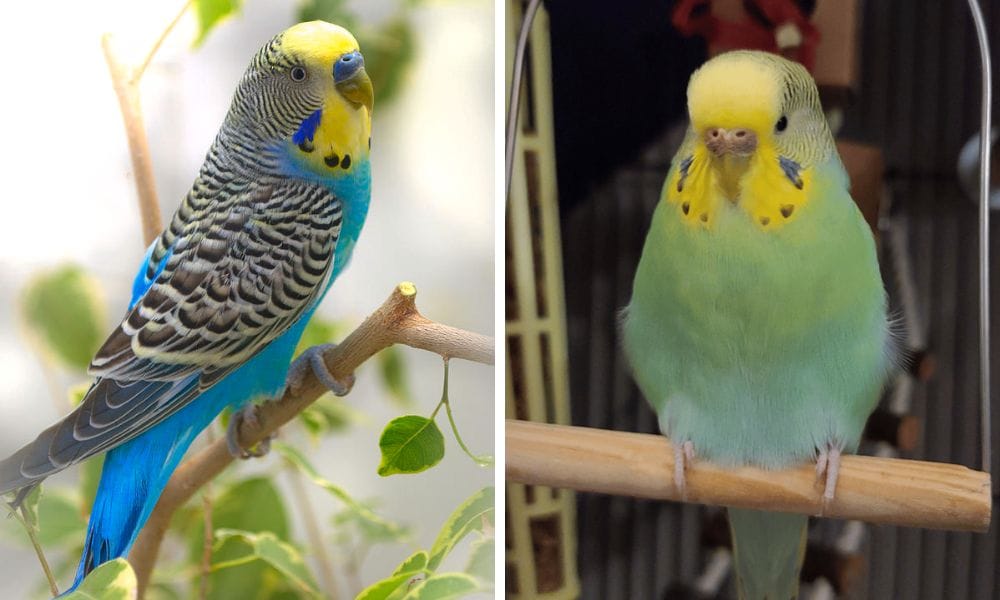
Fresh Foods: Adding Variety and Nutrition
Fresh food such as fruits and vegetables are a vital part of a parakeet's diet. These foods provide essential vitamins and minerals that seeds alone cannot offer. Some great options include green bell peppers, red bell peppers, carrots, and leafy greens like parsley.
Fruits such as mango dices and small amounts of orange peel can be given as occasional treats. However, it's important to avoid fruits that are high in sugar, as too much sugar can be harmful to parakeets. Always wash fruits and vegetables thoroughly before feeding them to your bird.
Pelleted Diets: Ensuring Nutritional Completeness
Pelleted diets are designed to provide a nutritionally complete diet for parakeets. These pellets are formulated to include all the essential nutrients that parakeets need. Brands like ZuPreem Natural offer high-quality pellets that are a great addition to your parakeet's diet.
Pellets should make up about 50-70% of your parakeet's diet. They are especially important for ensuring that your parakeet gets a balanced intake of vitamins and minerals. When choosing a pelleted diet, look for brands that use natural ingredients and avoid artificial additives.
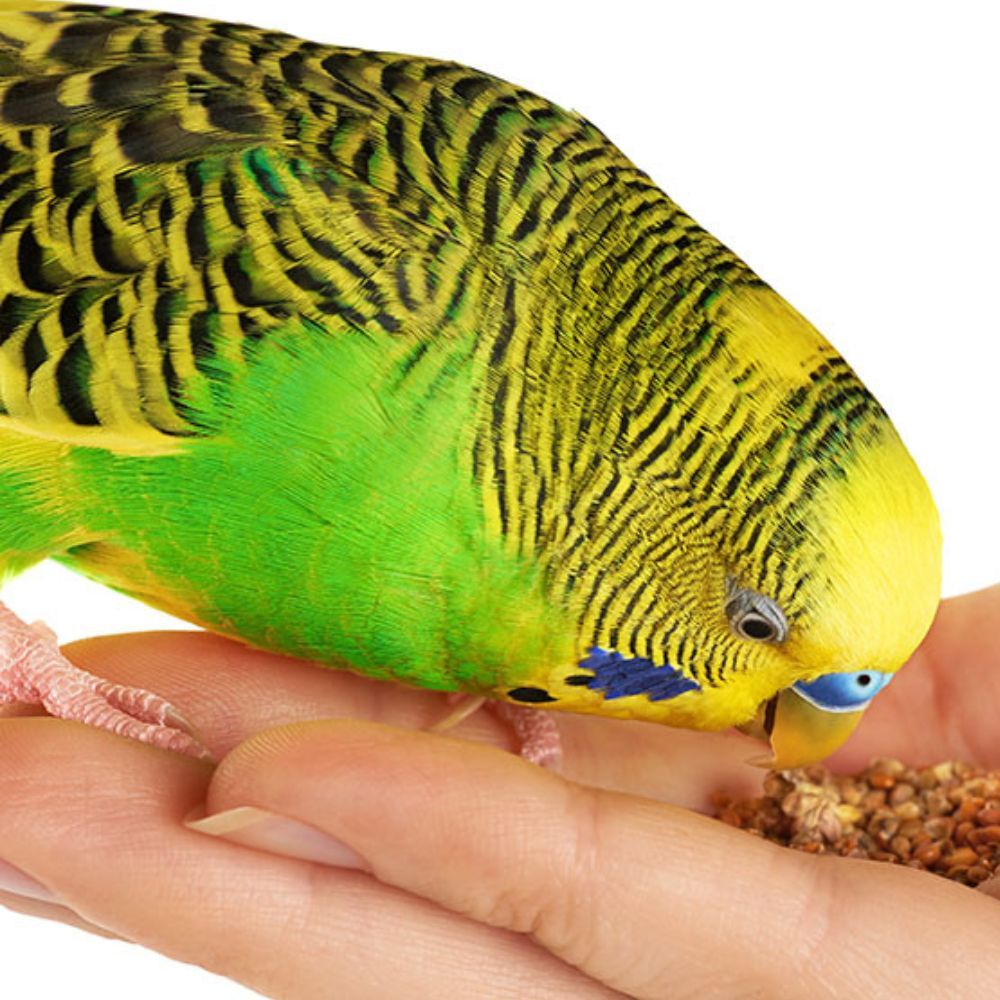
Fresh Water: The Lifeline of Your Parakeet
Fresh water is essential for all pet birds. Parakeets need access to clean, fresh water at all times. Water helps with digestion, nutrient absorption, and overall health. Make sure to change your parakeet's water daily to prevent the growth of bacteria.
In addition to providing fresh water, you can also offer your parakeet occasional treats like millet sprays. These treats can be hung in the cage and provide both nutrition and mental stimulation for your bird.
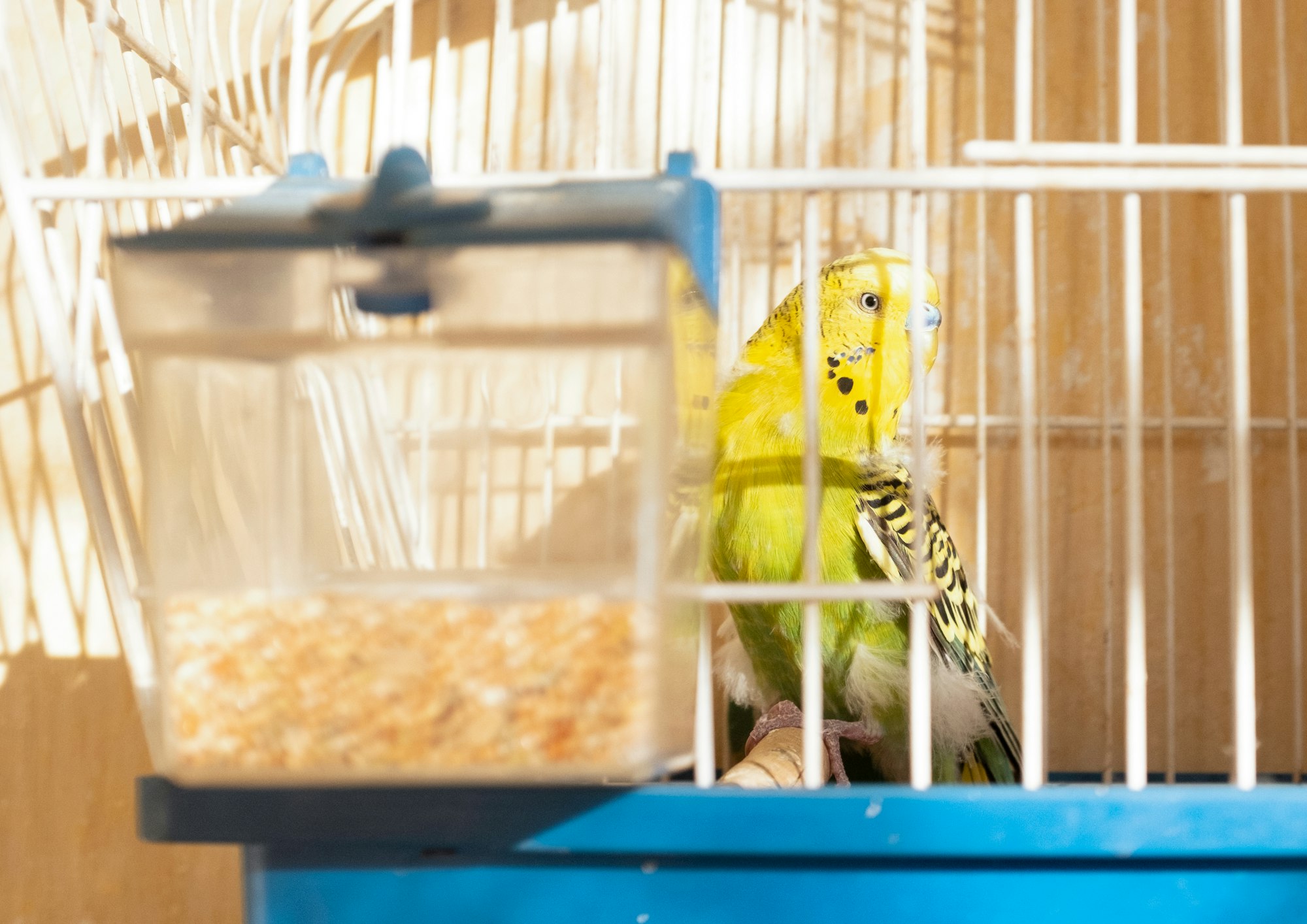
Nuts and Grains: Adding Protein and Fiber
Nuts and grains are excellent sources of protein and fiber for parakeets. Some great options include macadamia nuts, brazil nuts, and brown rice. These foods can be given in small quantities as part of a balanced diet.
It's important to remember that nuts are high in fat, so they should be given sparingly. Grains like brown rice can be cooked and mixed with vegetables to create a nutritious meal for your parakeet.
Occasional Treats: Keeping Your Parakeet Happy
Occasional treats are a great way to keep your parakeet happy and engaged. Treats like millet sprays, anise seed, and caraway seed can be given in small amounts. These treats provide variety and can be used as rewards during training.
While treats are a fun addition to your parakeet's diet, they should not make up more than 10% of their overall food intake. Overfeeding treats can lead to obesity and other health issues.
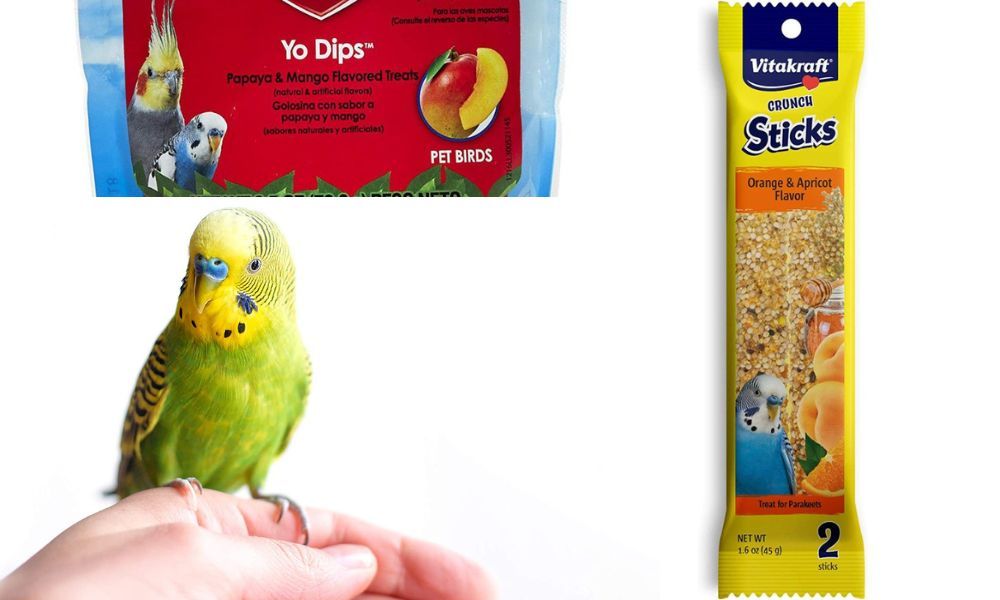
Foods to Avoid: Keeping Your Parakeet Safe
Not all foods are safe for parakeets. Some foods can be toxic and should be avoided at all costs. These include avocado, chocolate, caffeine, and alcohol. Additionally, avoid feeding your parakeet foods that are high in salt, sugar, or fat.
Always do your research before introducing new foods to your parakeet's diet. If you're unsure whether a food is safe, it's best to err on the side of caution and avoid it.
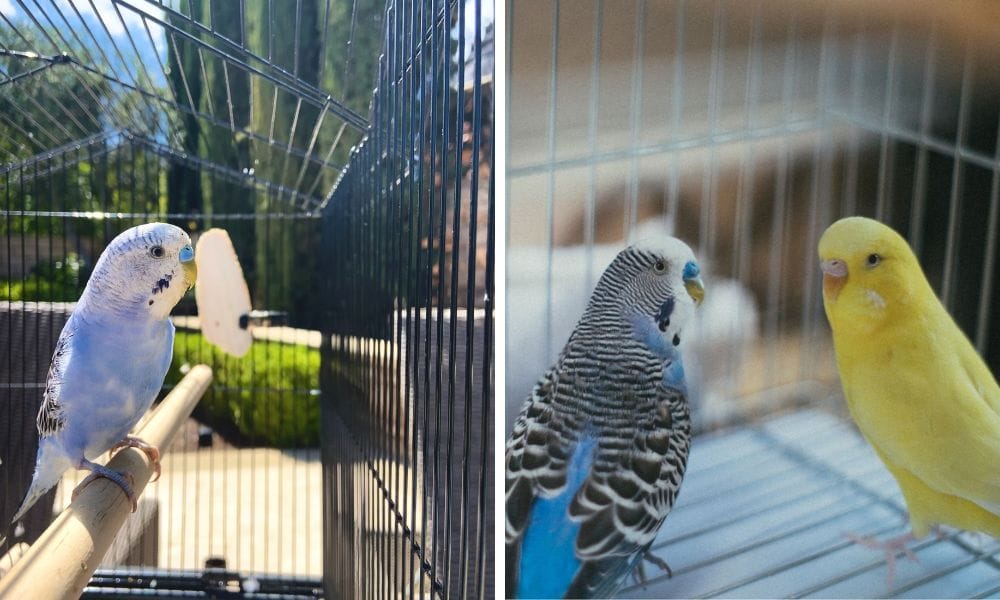
Tips for Feeding Your Parakeet
Feeding your parakeet doesn’t have to be complicated. Here are some tips to help you provide a balanced and nutritious diet for your feathered friend.
Case Study: A Healthy Parakeet Diet in Action
Let’s take a look at a real-life example of a healthy parakeet diet. Meet Charlie, a vibrant and active parakeet who enjoys a varied diet. Charlie’s owner, Sarah, ensures that he gets a mix of seeds, fresh fruits, vegetables, and pellets.
Every morning, Sarah offers Charlie a fresh bowl of seed mix that includes canary grass seed, white millet, and oat groats. She also provides a small portion of ZuPreem Natural pellets to ensure he gets all the essential nutrients. Throughout the week, Sarah rotates fresh foods like green bell peppers, carrots, fresh veggies, and mango dices to keep Charlie’s diet interesting.
Conclusion
Feeding your parakeet a balanced diet is crucial for their health and happiness. By offering a mix of seeds, fresh fruits, vegetables, and pellets, you can ensure that your parakeet gets all the nutrients they need. Remember to provide fresh water daily and offer occasional treats to keep your parakeet engaged and satisfied.
Summary
In summary, the best parakeet food includes a combination of seeds, fresh fruits, vegetables, and pellets. Seed mixes should be high-quality and free from artificial additives. Fresh foods provide essential vitamins and minerals, while pellets ensure a nutritionally complete diet. Fresh water is vital for your parakeet's health, and occasional treats can keep them happy and engaged. Avoid feeding your parakeet toxic foods and always do your research before introducing new foods to their diet.
FAQ
What seeds are best for parakeets?
The best seeds for parakeets include canary grass seed, white millet, red millet, sesame seed, sunflower seeds, hemp seed, and oat groats. These seeds provide essential fats and proteins that parakeets need.
Can parakeets eat fresh fruits and vegetables?
Yes, parakeets can eat fresh fruits and vegetables. Some great options include green bell peppers, red bell peppers, carrots, leafy greens like parsley, and fruits like mango dices and small amounts of orange peel.
How often should I change my parakeet's water?
You should change your parakeet's water daily to ensure it remains clean and free from bacteria. Fresh water is essential for your parakeet's health and well-being.
If you are a parakeet parent, there is no time to waste in finding the absolute best food items they can eat. With the vast array of options on Amazon, it can be hard to make the right decision for your pet's special diet. Take the guesswork out of selecting their food and click the link now for a well-researched list of choices that stand above all others. This list will make sure you get your feathery friend exactly what he or she needs! Don't hesitate – start making healthier decisions right away by clicking the link below today!

